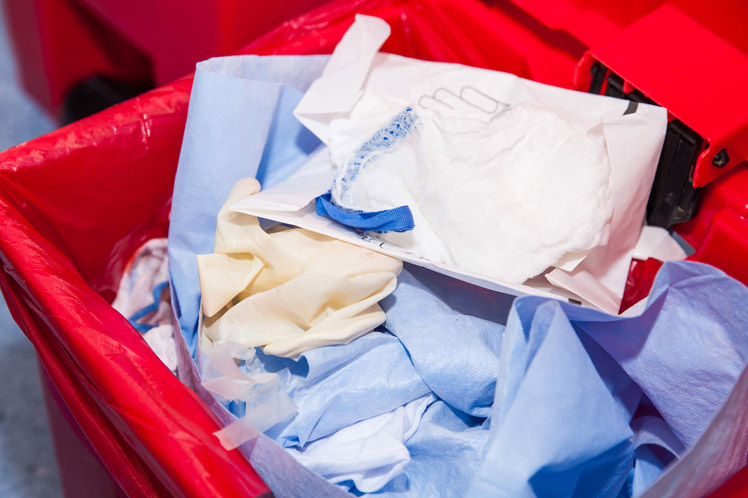The authors of the report noted that they only provided an initial indication of the scale of the problem, without taking into account any of the basic products needed to curb the disease purchased outside the initiative, nor the waste generated by the public such as disposable medical masks.
According to WHO estimates, approximately 87,000 tons of personal protective equipment (PPE), purchased between March 2020 and November 2021, were sent to support countries, in addition to over 140 million test kits, with the potential to generate 2,600 tons of non-infectious waste (mainly plastic) and 731,000 liters of chemicals (equivalent to a third of an Olympic pool).
More than eight billion doses of vaccines were administered around the world, producing an additional 144,000 tons of waste in the form of syringes, needles and safe deposit boxes, the WHO said.
As the United Nations and the territories were faced with the immediate task of assuring and guaranteeing the quality of PPE supplies, less attention and resources were devoted to the sustainable management of healthcare wastes related to Covid-19, the analysis highlighted.
According to the study, 30 percent of health facilities (60 in the least developed States) are currently not equipped to handle existing waste loads, much less the additional one from the Covid-19 pandemic.
jg/llp/mem/znc










